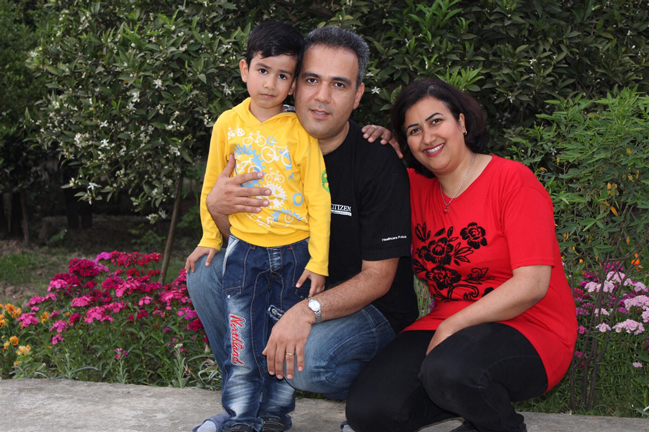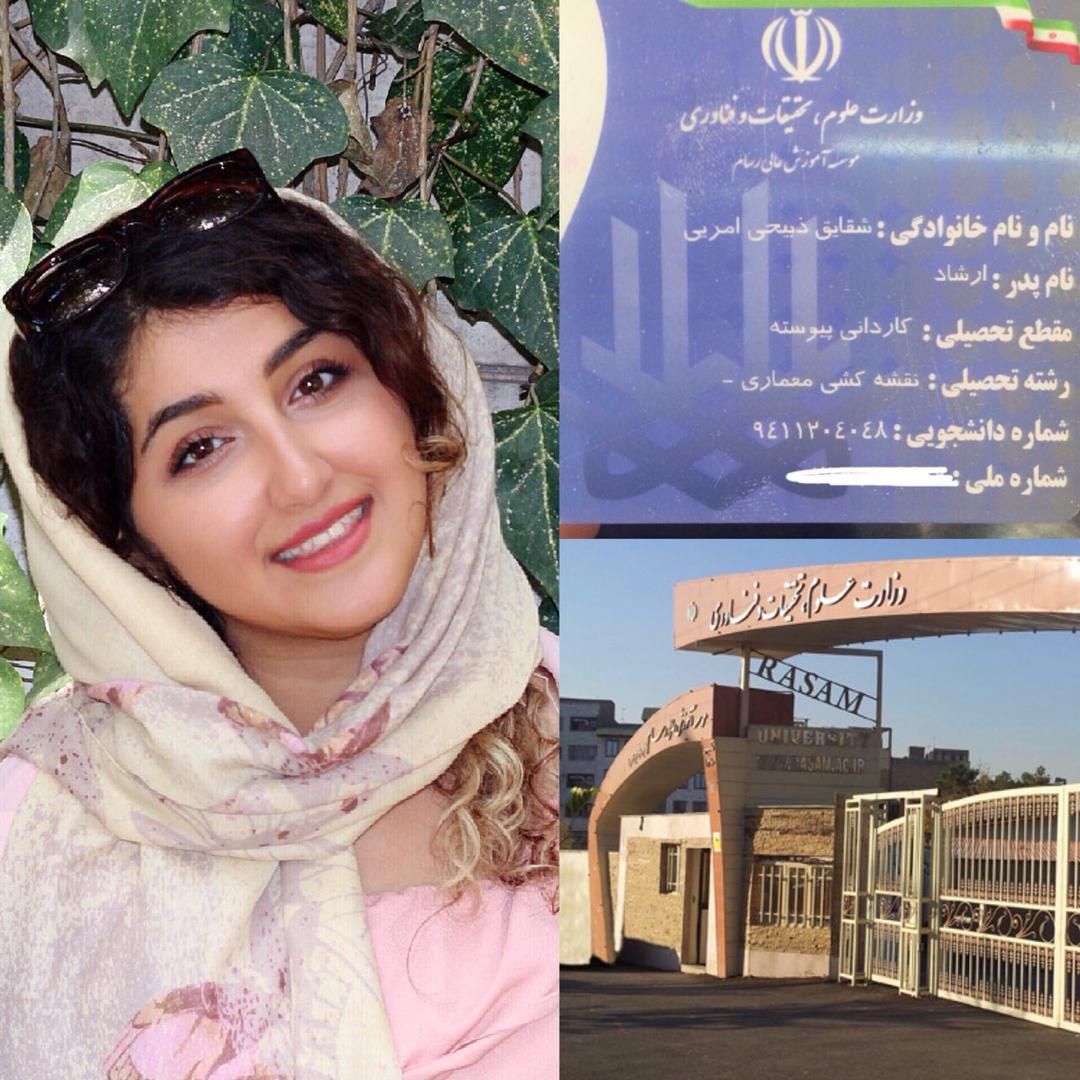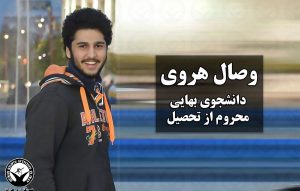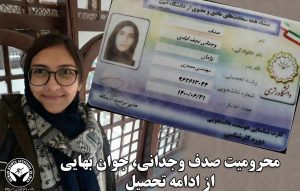Iran Press Watch, August 16, 2018.
Source: iranwire.comBy Kian Sabeti (shortened)
In recent days, according to reports received by IranWire, the Intelligence Bureau of Karaj has been pressuring a number of Bahai university applicants to promise that if their applications for the university are accepted, they will stop following the tenets of their faith.
Over the last several recent years, many Bahais who have successfully passed the entrance exams are turned away from universities under the pretext of having an “incomplete portfolio.” Pegah (پگاه), who lives in Karaj near Tehran, was previously given the same excuse when he was told he would not be able to attend college, but the story did not end there.
“On Sunday morning, someone — who did not identify himself —phoned and said he wanted to have a short interview with me about the 2018 entrance exams,” Pegah told IranWire. “He gave me the address of the Intelligence Bureau of Gohardasht, where I was to go. At 10am on the following day I went to that address and spent about 20 minutes in a room answering their questions. They told me that the results of the entrance exams were likely to be published soon and since I might have passed the tests they had to get some information about me. They asked me questions about Bahai religious organizations and religious classes, but I did not answer these questions because they had nothing to do with the entrance exams. I only wrote down my own bio.”
“Essentially, they wanted two things,” Pegah said. “The first was that if I were accepted to the university, I would not proselytize for the Baha’i Faith. I asked them to show me a law that makes proselytizing illegal. Then I told them that I would not proselytize but that if somebody asks me about my faith I cannot lie. [Baha’i tenets do not allow a Baha’i to lie about his faith.] The second was that if I was enrolled I would follow the laws of the Islamic Republic instead of the instructions issued by the House of Justice [the international governing council of the Baha’i faith]. I replied that I would obey the laws of the Islamic Republic but that I cannot ignore the instructions of the House of Justice because as a Bahai I must obey them.”
For 18-year-old Nina (نینا), this year’s entrance exam was her first. Three days ago, the Intelligence Bureau of Karaj called her and asked her to go to their office to answer questions related to the exams and, like Pegah, she followed their instructions. “They gave me two forms,” she told IranWire. “The first form was about detailed personal information, even strange questions like “known as” and “nickname.” I filled it out and signed it. Then they verbally asked me questions about Baha’i gatherings and my religious activities but since the questions had nothing to do with the exams I refused to answer them.”
The second form, besides asking for a full name, was a series of statements to be ticked off. “For instance,” she said, “whether I had passed the exam or I had selected my field of study. But at the bottom of the form it said: ‘I obey the laws of my country, not those of the House of Justice in Occupied Palestine and I do not recognize the House of Justice.’”
Nina did not fill out the second form and told officials it did not apply to her because the first question was about selecting a field of study and she had not done so. But they insisted she fill it out, saying: “If you pass the exam next year, you must sign this form before you go to the university, so it would be better if you would fill it out today.” Nina answered that if that happened, she would return. “We will talk about the form,” she told them.
Bahais in Iran were barred from participating in university entrance exams until 2005, when the Education Evaluation Organization, which oversees all aspects of nationwide university entrance exams and admissions, announced a change in the meaning of the “religion” question on application forms, saying that it did not meant to ask the actual religion of the applicants but instead about applicants’ knowledge about a specific religion. So, after 25 years, Bahai applicants could participate in the entrance exams. The Bahais chose “Islam” and were granted permission to compete in the exams. But if they did pass the exam, they were turned away with the excuse of “incomplete portfolio.” The very few who somehow slip through are expelled the moment the security office of the university finds out they are Bahais [in practice — when the Ministry of Intelligence order the University to expel them ~ Sen].
This religious discrimination extends even to private and non-profit institutes of higher education. In the last 40 years no Bahai has graduated from any university in Iran although Bahais are the biggest non-Muslim religious minority in Iran.
Since the 1979 Revolution, Bahais have been denied the most basic of citizen civil rights. They are even banned from working for the government. At international forums, officials of the Islamic Republic consistently deny this discrimination against the Bahais but, story after story, as with the two above, belie their claims.
Older items can be found in the archive, here. Even older news is here.























